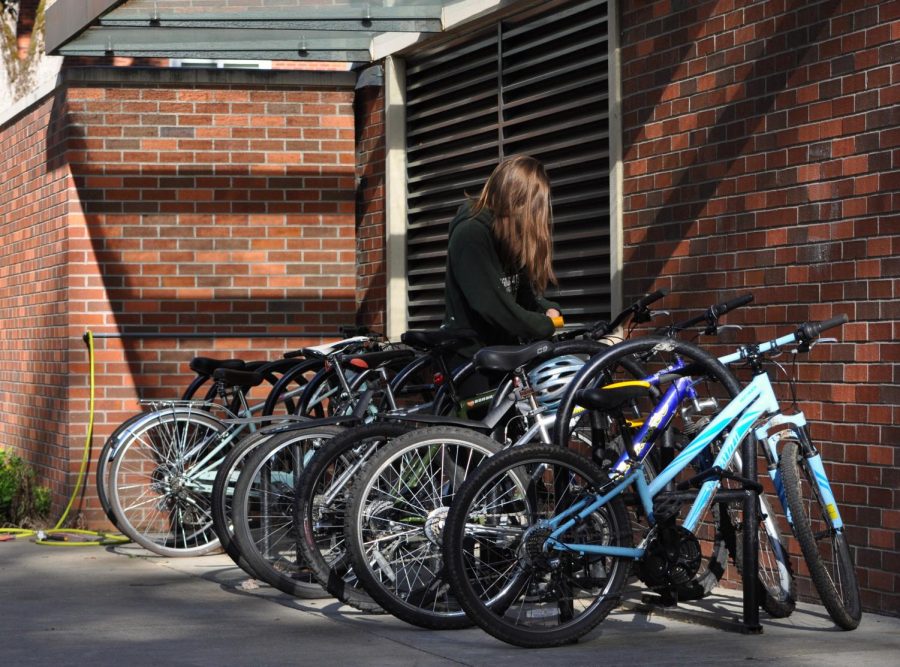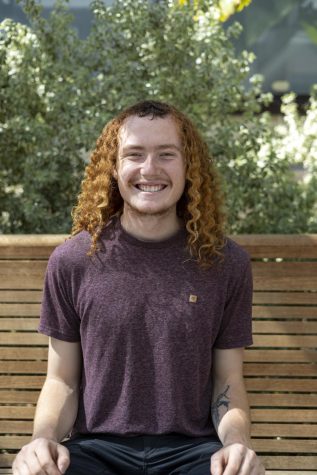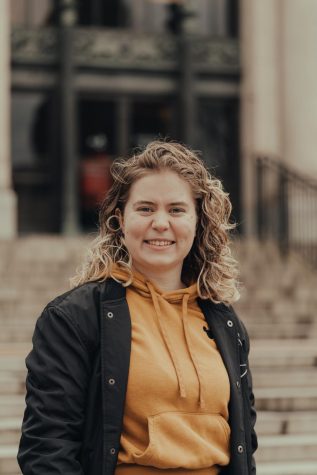ZAP biking aims to encourage students to bike more through prizes and competition incentive
June 6, 2022
ZAP biking is an on-campus service at Oregon State University that, since COVID-19 quarantine is over for most, is now trying to increase awareness and encourage more people to bike to and around campus.
ZAP biking is offered at OSU’s Corvallis, Ore. campus and is open to both employees and students.
Community members can get a ZAP tag from one of three locations on or near campus. The tag then attaches to the bike so when the user passes a ZAP station, they get a ZAP. The more of these ZAPs someone gets, the more eligible they are for prizes and other things.
“We wanted to find a way to encourage people to bike more and have a little fun with bike commuting and have fun with a little community on campus,” said Meredith Williams, director of Transportation Services at OSU.
ZAP was originally founded at OSU in 2017 with the launch occurring in 2018 during the Beyond Earth Day spring event, according to Sara Dalotto, the sustainable transportation coordinator at OSU.
Josh Norris, the director of the Adventure Leadership Institute, was one of the crew members to help install the stations back in 2017. From there, people all over the campus were able to invite others to join in the program.
“My dream is to look at a bike rack anywhere on campus and see more than half with ZAP tags,” Dalotto said. “We were going really strong until the pandemic where we slowed things down a bit…We are just rebuilding now that people are commuting back to campus. Every time we go out people are interested and excited to hear about the program.”
There are three stations in Corvallis where people can get a ZAP tag, according to Williams. These are the ALI bike shop, the ZAP office in the Western Building at 850 SW 35th Street and the Corvallis Bicycle Collective on NW 11th St. Community members can also get involved if they find ZAP workers at a table on campus, where they do outreach in order to recruit more students.
Joining ZAP comes with many benefits. Every time a user passes one of the 11 ZAP stations on campus, they’ll hear a beep sound.
“The beep goes off and there are students going like, ‘What is that?’” said Elizabeth Dennis-Pavlich, the transportation options outreach assistant and student at OSU. “The beep is pretty loud, it is supposed to be loud. You can hear it while riding a bike, it is the confirmation.”
Students who get more than 10 of these ZAPs a month are entered into a drawing for free stuff. Bike brands out of Portland, Ore. or Eugene, Ore. have been known to sponsor products, so users might get a water bottle or lights for their bike.
“We have a couple of tiers of prizes in our structure,” Dalotto said. “We have small sets of bike lights that we hand out generally in the fall; when it starts to get dark. We have patch kits as a thanks for joining the program. For the prize drawings, many people are entered into the drawing and then 20 people are selected at random for that win, so those prizes are of higher value.”
Essentially, the more someone bikes, the higher the value of prizes they could get. According to Williams, community members can look at the zap.oregonstate.edu website for more information, or just search “ZAP OSU.”
“There aren’t really any disadvantages,” Dennis-Pavlich said. “It is not high commitment, we are not asking people to do things… You can read the ZAP newsletter to get involved or go to a station on campus.”
According to Williams, the ZAP tag is also passive, though antennas send out signals to read the tags, as data is kept private.
Those who sign up will also become eligible to make teams and participate in certain events. There is also a map on the website of ZAP stations on campus.
“I’ve noticed people have made some pretty cool connections,” Dalotto said. “I love seeing the mixed teams of faculty and students, and how that builds relationships in their department or work group. I also enjoy just hearing from the people participating in ZAP.”












































































































